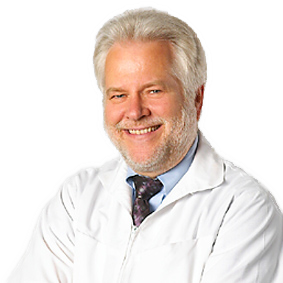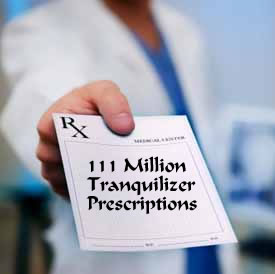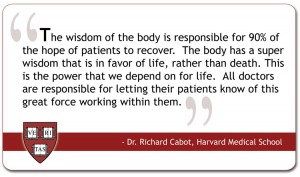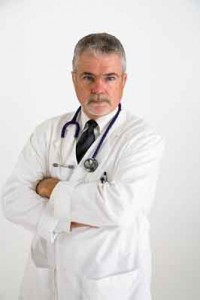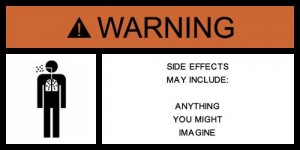From time to time I have patients relate to me that their medical doctor is trying to scare them away from taking their vitamins. One tactic is just to ask the patient why are you taking those, and since most patients can't explain the biochemistry they can feel a little flustered and thus a little insecure about taking them. The complexities of changing your biochemistry and thus improving your health are an area we would not expect you to fully understand but I hope you feel comfortable asking questions so you can understand why you're taking what you take. The facts are this: there is more research behind diet and nutritional therapy in promoting health and longevity then there is behind the use of drugs. The vast amount of research primarily funded by the federal government over the past 60 years have proven what we see every day in our practice, diet and nutrition is one of the most powerful tools in restoring health and maintaining it over the long run. Drugs suppress symptoms, Vitamins heal. Drugs have become increasingly dangerous over the years and kill over 3000 people a week. I believe if most people read the side effects from the drugs they're taking many would stop taking drugs. But in the doctor-patient setting if your doctor is making you feel stupid about taking supplements that can be a lot of pressure.
Why do medical doctors do that? First of all not all medical doctors practice that way. In fact the younger medical doctors are starting to investigate nutrition on their own. The training they got in school is absurd. Your local car mechanic might know more about diet and nutrition than the average medical doctor. The following article helps explain why: Medical Doctors Have Little or No Knowledge of Nutrition Because Medical Schools Offer Little or No Education on Nutrition, Vitamins or Minerals Posted on June 9, 2011 by Mannie Barling and Ashley F. Brooks The fundamental reason why doctors do not know much about nutrition is because very few of them study much, if not anything, about nutrition in medical school. This is largely because the curriculum is heavily influenced by the food and drug industries. Ray D. Strand, MD, the author of Death By Prescription, punctuates the lack of education about nutrition by saying:
"In medical school I had not received any significant instruction on the subject. I was not alone. Only approximately 6 percent of the graduating physicians in the United States have any training in nutrition. Medical students may take elective courses on the topic, but few actually do… the education of most physicians is disease-oriented with a heavy emphasis on pharmaceuticals - we learn about drugs and why and when to use them."
Dr. Strand, also, observed that doctors usually make good teachers, but not good students. Most doctors fear not knowing the answers to medically-related issues and will try to present themselves with as much authority as possible.
Dietary supplements are a very foreign subject for most doctors, and most doctors show no interest in learning more about them. He opines that doctors are not taught much in medical school about the power of nutrition in medicine - only about the power of prescription drugs and surgery as treatment for diseases.
Why do we use supplements?
My postgraduate training was in family practice and internal disorders. And if we were talking about cardiovascular disease or immune system disorders or arthritis we covered the overwhelming research that showed nutritional therapy as one of the top approaches to effectively deal with these issues. Just talking about cardiovascular disease I can still remember the news reports in the 80s when the convention of “heart specialists” were having their annual meeting in Florida and how they were chided by research lecturers about the importance of vitamin E in stopping heart attacks. In fact research shows that nutritional therapy is far more effective in preventing and managing heart disease than any drug on the market. I'm not saying that there aren't times that drug therapy is not life-saving but when it comes to healing and repair, nutritional therapy is essential. You don't make healthy tissue cells from drugs you make them from vitamins, minerals and enzymes. You make hormones from the foods that you put in your mouth. You make white blood cells from the foods that you put in your mouth. And that's why I feel any physician who doesn't have the knowledge to help their patients with diet and supplementation should not be in the office of a primary care physician. Drugs and surgeries are best left to the emergency rooms. Repairing organs by rebalancing biochemistry comes from diet and nutrition. Every Surgeon General in the past 20 years has admitted that diet and lifestyle are the number one cause for our most common health problems. So does it seem odd that chiropractic physicians would focus on diet and lifestyle? What's odd is the medical profession doesn't. Yes they give lip service to eating right but what does that mean? Putting everybody on the Heart Association diet has been proven to be detrimental to the population as a whole. As individuals we require that our diets be customized to our own genetic makeup. And nutritional therapy or supplements also needs to be customized.
What should I do if my medical doctor says supplements are dangerous and they should stop taking them? If you want to give them a hard time you can ask him which of the drugs that you are recommending to me are free of side effects?
Which of the drugs that you recommending to me is my body using to make healthy tissue cells? Okay, I'm joking. What I would recommend you do is just smile and say thank you. You need to remember he has no training in nutrition and feels somewhat threatened. We all have a certain amount of fear about something were not familiar with. He's in a position where he should know and he doesn't, so instead of admitting his ignorance to you he comes across like he knows better.
It’s sad as a patient you have to work through these political differences in healthcare. And believe me these are political differences not scientific ones. The science is on the side of diet and nutrition. And you can believe me that most of the studies that you hear that are negative about nutrition are what we call "junk science". Let me explain, one year after the Heart Association convention, we discussed earlier, in the recommendation given to the heart surgeons to recommend vitamin E there was another vitamin E research report a year later. I can remember the CNN report as if it was yesterday. Two or three doctors in white coats were standing at a podium explaining how their research showed that vitamin E does not help with heart attacks, that's amazing since the last 15 to 20 years of research said the opposite. So then on one side you have 15 to 20 years of research supporting the use of vitamin E with heart disease and the other side you have this research that shows it doesn't help. Remember the devil is in the details. The research over the past 15 to 20 years supported the use of 400 units of vitamin E as a way of preventing a second heart attack. When you look at the research that seemed to contradict this you find a very interesting fact. They didn't use 400 units of vitamin E in their research. How much did they use? Around 30 units. Now you have to ask a question: Why they would use such a low dose of vitamin E when all the other research indicated the use of over 10 times that amount. And why didn’t they release on CNN that 30 units of vitamin E doesn't seem to help prevent a second heart attack instead of saying just vitamin E in our study didn't prevent a second heart attack. Some might conclude that they were being deceptive. And the question is which pharmaceutical company paid for this research? Research that was doomed to fail from the start. Research that would just be used to muddy the water on the use of supplements. And the sad fact is you can buy any research results that you want in our politically charged environment today.
A little common sense and logic can help you work through this maze of contradictory information. The supplements that we recommend are based on our evaluation of you and we have individualized the supplements that we recommend through testing. Our approaches are driven by science and over 30 years of working with patients and helping them recover their health. When you start improving under natural healthcare is because your body is healing. If your headache goes away because you took and aspirin you just covered up the problem, no healing has taken place. The choice is yours we hope you choose health.

